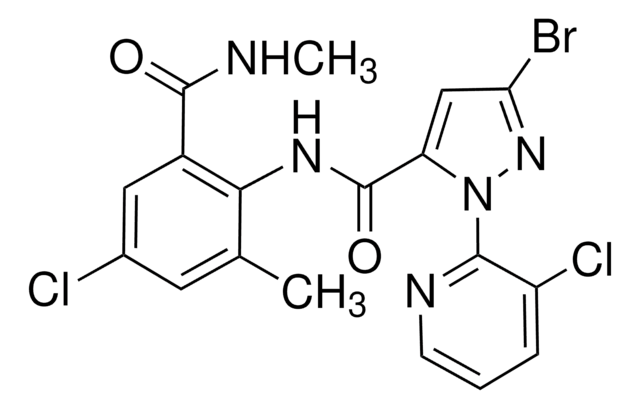36758
Clopyralid
PESTANAL®, analytical standard
Sinónimos:
3,6-Dichloro-pyridine-2-carboxylic acid
About This Item
Productos recomendados
grado
analytical standard
Nivel de calidad
Línea del producto
PESTANAL®
caducidad
limited shelf life, expiry date on the label
técnicas
HPLC: suitable
gas chromatography (GC): suitable
aplicaciones
agriculture
environmental
formato
neat
cadena SMILES
OC(=O)c1nc(Cl)ccc1Cl
InChI
1S/C6H3Cl2NO2/c7-3-1-2-4(8)9-5(3)6(10)11/h1-2H,(H,10,11)
Clave InChI
HUBANNPOLNYSAD-UHFFFAOYSA-N
¿Está buscando productos similares? Visita Guía de comparación de productos
Descripción general
Aplicación
Información legal
¿No encuentra el producto adecuado?
Pruebe nuestro Herramienta de selección de productos.
Palabra de señalización
Danger
Frases de peligro
Consejos de prudencia
Clasificaciones de peligro
Eye Dam. 1
Código de clase de almacenamiento
11 - Combustible Solids
Clase de riesgo para el agua (WGK)
WGK 3
Punto de inflamabilidad (°F)
>212.0 °F - closed cup
Punto de inflamabilidad (°C)
> 100 °C - closed cup
Equipo de protección personal
dust mask type N95 (US), Eyeshields, Gloves
Elija entre una de las versiones más recientes:
¿Ya tiene este producto?
Encuentre la documentación para los productos que ha comprado recientemente en la Biblioteca de documentos.
Los clientes también vieron
Nuestro equipo de científicos tiene experiencia en todas las áreas de investigación: Ciencias de la vida, Ciencia de los materiales, Síntesis química, Cromatografía, Analítica y muchas otras.
Póngase en contacto con el Servicio técnico

